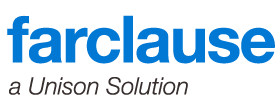This clause has not been authorized for official release. We recommend deferring to the text of the clause in your RFP or contract.
As prescribed in AI 5125.7703-5(S-100)(j), insert clause 5152.225-5914, Commodity Shipping Instructions, in all solicitations and contracts requiring the shipment of commodity items to Afghanistan. This is also applicable to the shipment of commodity items in support of a service contract.
COMMODITY SHIPPING INSTRUCTIONS (AUG 2011)
(a) USFOR-A FRAGO 10-200. United States Forces Afghanistan (USFOR-A) has directed that all shipments into and out of the Combined Joint Operations Area - Afghanistan (CJOA-A) be coordinated through the Defense Transportation System (DTS) in order to expedite the customs clearance process and facilitate the use of in-transit visibility for all cargo in the CJOA-A.
(b) Information regarding the Defense Transportation System (DTS). For instructions on shipping commodity items via commercial means using DTS, see the following websites:
1. Defense Transportation Regulation – Part II Cargo Movement - Shipper,
Trans-shipper, and Receiver Requirements and Procedures:
http://www.transcom.mil/dtr/part-ii/dtr_part_ii_203.pdf
2. Defense Transportation Regulation – Part II 4 Cargo Movement – Cargo
Routing and Movement: http://www.transcom.mil/dtr/part-ii/dtr_part_ii_202.pdf
3. Defense Transportation Regulation – Part V - Department of Defense Customs and Border Clearance Policies and Procedures: http://www.transcom.mil/dtr/part-v/dtr_part_v_512.pdf
(c) Responsibilities of the vendor carrier representative, shipping expediter, and/or customs broker:
1. Afghanistan Import Customs Clearance Request Procedures: The carrier, shipping expediter, and/or customs broker is responsible for being knowledgeable about the Afghan Customs Clearance Procedures.
2. Status of Customs Clearance Requests: All inquiries regarding the status of a customs clearance request prior to its submission to Department of Defense (DoD) Customs and after its return to the carrier representative or shipping expediter should be directed to the carrier or shipping agent.
3. Customs Required Documents: The carrier representative or shipping expediter is required to provide the DoD Contracting Officer Representative (COR) with all documentation that will satisfy the requirements of the Government of the Islamic Republic of Afghanistan (GIRoA).
(d) Required Customs Documents: Documents must be originals (or copies with a company stamp). Electronic copies or photocopied documents will not be accepted by GIRoA. The carrier is responsible for checking the current requirements for documentation with the Afghanistan Customs Department (ACD) as specified by the U.S. Embassy Afghanistan’s SOP for Customs Clearance Requests Operations (http://trade.gov/static/AFGCustomsSOP.pdf) and paragraph 4 below.
1. The U.S Ambassador Afghanistan diplomatic note guarantees that the U.S. Government (USG) shipments are exempt from Afghanistan Customs duties and taxes. USG shipments do not provide commercial carriers with the authority to unnecessarily delay shipments or holdover shipments in commercial storage lots and warehouses while en route to its final destination. The U.S. Embassy expects that shipments will be expedited as soon as customs clearance paperwork is received from the respective GIRoA officials.
2. Imports: Documentation must list the year, make, model, and color of the commodity, the commodity Identification Number (if applicable) and for vehicles, the Engine Block Number. The following documentation is required for all import shipments:
a. An original Customs Clearance Request (CCR) prepared by the COR in accordance with Afghanistan customs guidance referenced in paragraph 4 below.
b. Bills of Lading (for shipments by sea), Airway Bills (for shipments by air) or Commodity Movement Request (CMRs) (for overland shipments). In the consignee block, type in “US Military”. This will help the Afghan Customs officials to recognize that the shipment belongs to the US Military and, therefore, the shipment is subject to tax exemption provisions as specified under the current Diplomatic Note or Military Technical Agreement (MTA).
c. Shipping Invoices.
d. Packing Lists. Required only if the shipping invoice does not list the cargo.
e. An Afghan Government Tax Exemption Form (Muaffi Nama) purchased from the Department of Customs and Revenue and prepared in the local language by the carrier representative, shipping agent, or customs broker.
f. A Diplomatic Note, prepared by DoD Customs, to the Ministry of Foreign Affairs requesting the initiation of customs formalities with the Ministry of Finance, Department of Customs and Exemptions. Please note that DoD Customs is not responsible for registering vehicles.
g. Commercially-owned equipment such as vehicles, construction machinery or generators that are leased and imported to Afghanistan for the performance of a USG contract may be subject to taxes and duties as determined by GIRoA. If commercially-owned equipment is imported into Afghanistan in a duty-free status, that duty-free status only applies as long as the equipment is under the exclusive use of the USG contract. If the equipment is released at the end of the contract, applicable GIRoA duties and taxes will apply to the owner if the equipment is not exported from Afghanistan or transferred to another USG contract.
h. USG-owned vehicles must be exported at the conclusion of the project period or transferred to another USG entity. Under certain conditions, the USG may transfer equipment or vehicles to GIRoA.
3. Exports: The following documentation is required for all export shipments:
a. An original CCR prepared by the COR. If COR is not available, the Contracting Officer (KO) will prepare the CCR.
b. Invoices.
c. Packing Lists. Required only if the shipping invoice does not list the cargo.
d. A Diplomatic Note, prepared by the DoD Customs Cell, to the Ministry of Foreign Affairs requesting the initiation of customs formalities with the Ministry of Finance, Department of Customs and Exemptions.
4. Customs requirements from the GIRoA may change with little notice. For current detailed instructions on customs guidelines in Afghanistan, refer to “The Instruction for Customs Clearance Request (Import/Export) Operations.” In all cases, the carrier is required to obtain a copy of this document, found at the following link: http://trade.gov/static/AFGCustomsSOP.pdf
(e) Point of contact (POC) for customs issues is the USFOR-A Joint Security Office (JSO) J3 at DSN: 318-449-0306 or 449-0302. Commercial to DSN conversion from the United States is (732) 327-5130, choose option #1, and then dial 88-318 followed by your seven-digit DSN number.
(End of Clause)
NONE
